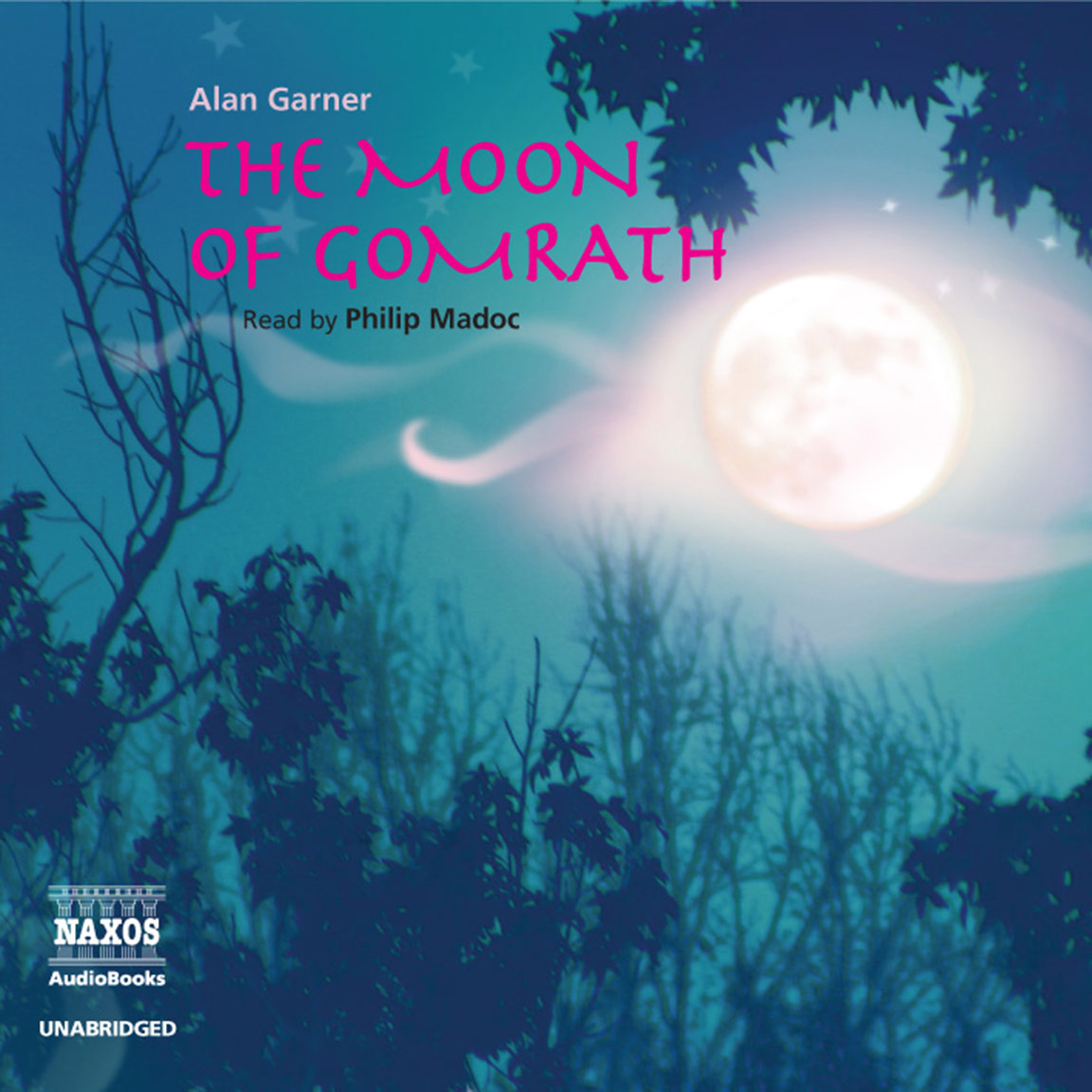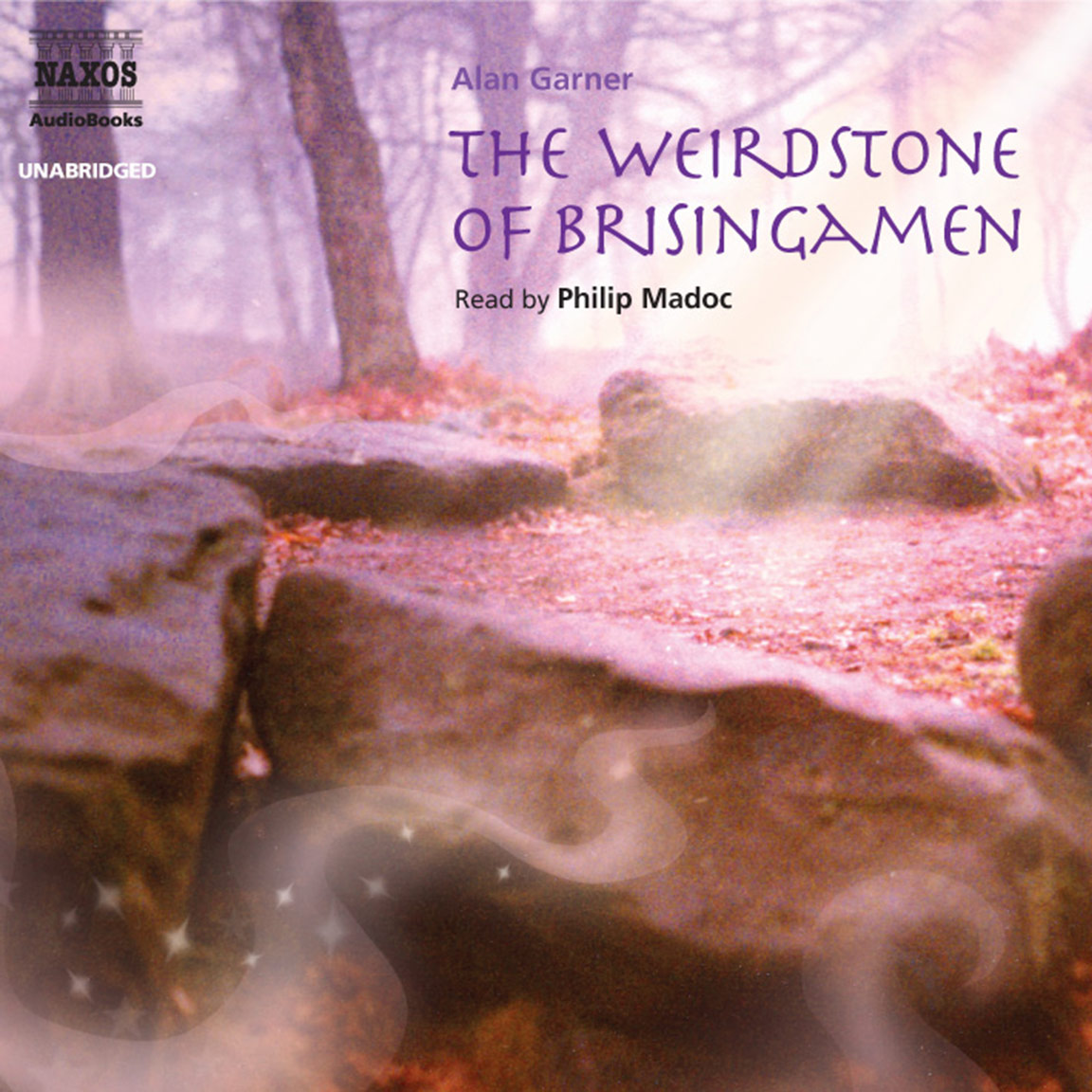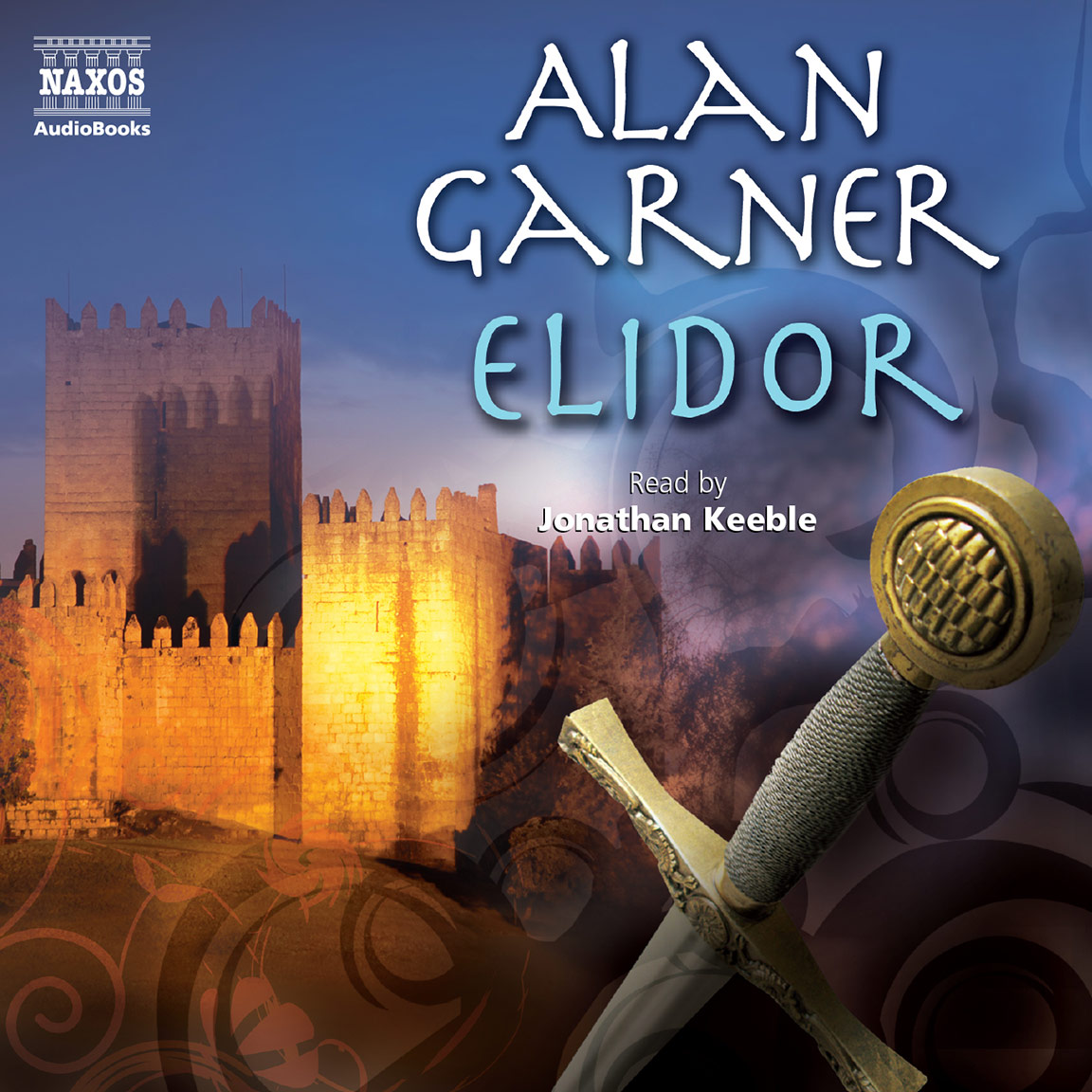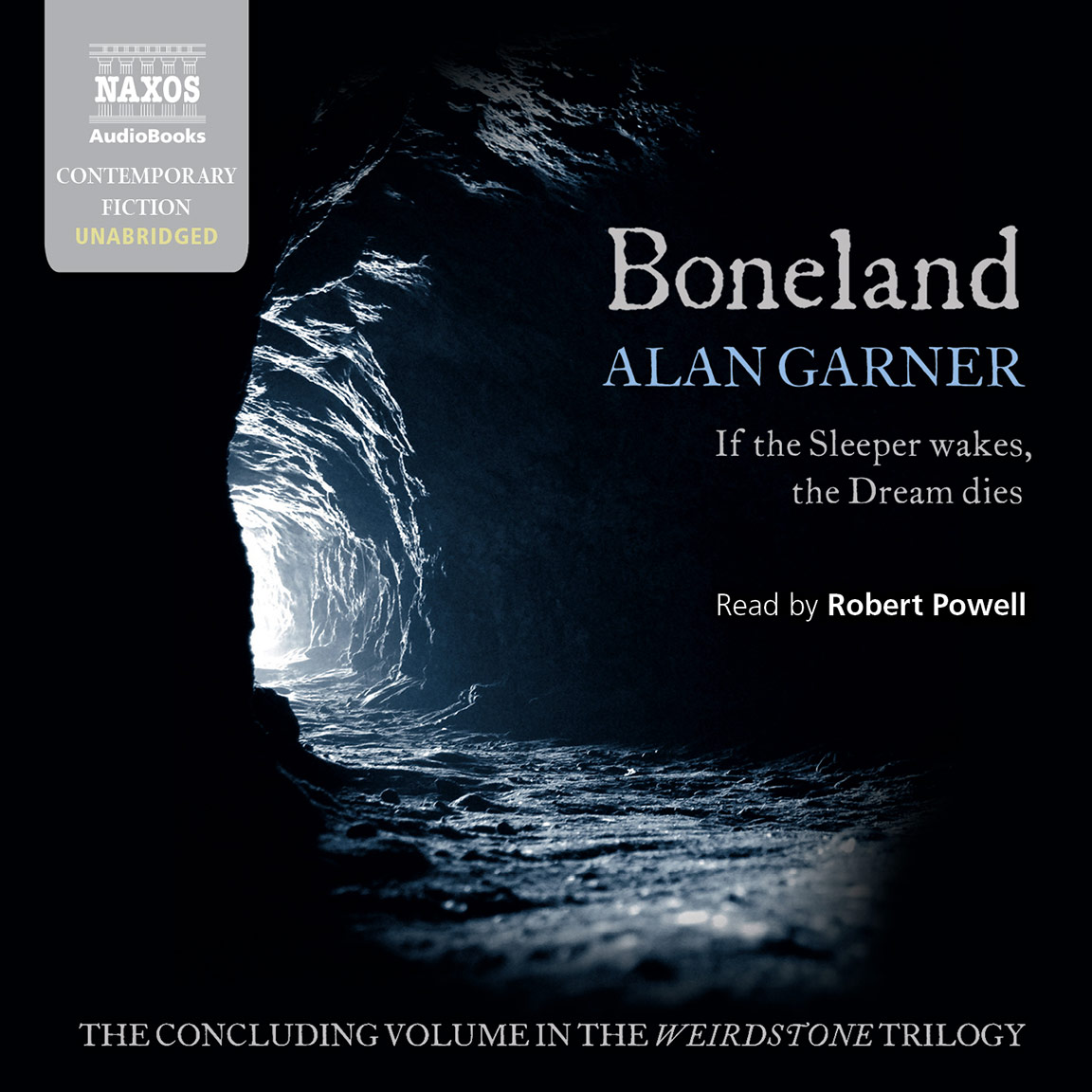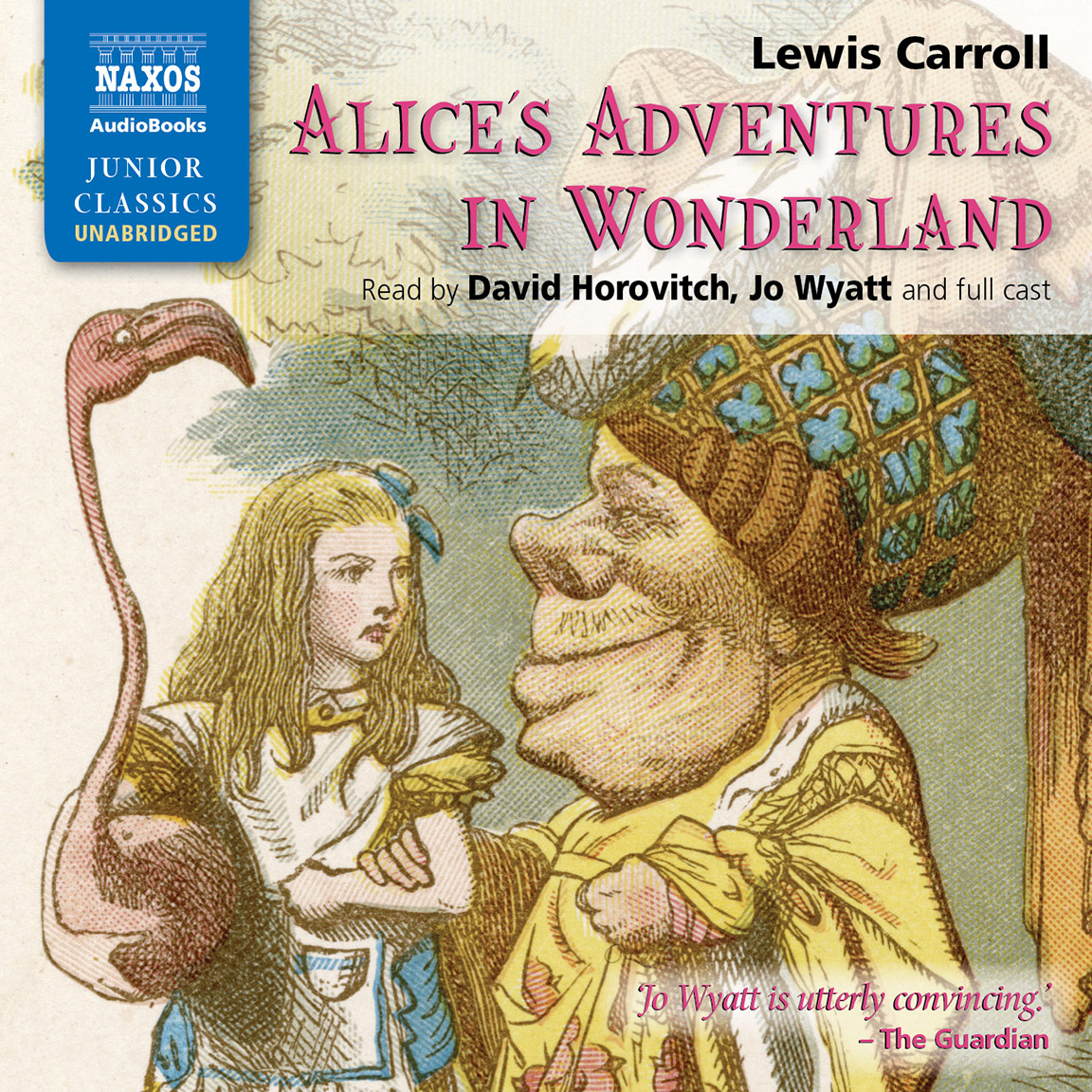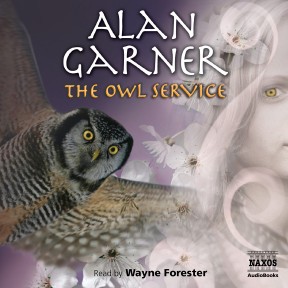
Audio Sample
Alan Garner
The Owl Service
Read by Wayne Forester
unabridged
After hearing scratches in the attic, Alison discovers a dinner service covered in an intriguing floral owl pattern, and a series of events are set in motion that will change her life forever. Alison, her step-brother Roger and Welsh boy Gwyn are forced into a cyclical replay of the tragic Welsh legend of Blodeuwedd, in which a woman is turned into an owl as a punishment for betraying her husband. The Owl Service is a fabulous, multi-layered book of mystery and suspense, but also a contemporary musing on love, class structure and power.

-
Running Time: 4 h 53 m
More product details
Digital ISBN: 978-962-954-784-4 Cat. no.: NA593112 Download size: 71 MB BISAC: JUV007000 Released: September 2008 -
Listen to this title at Audible.com↗Buy on CD at Downpour.com↗Listen to this title at the Naxos Spoken Word Library↗
Due to copyright, this title is not currently available in your region.
You May Also Enjoy
Reviews
Sound Commentary Best of 2009
Three teens unwittingly and inadvertently live out once more an age old Welsh Mabinogian legend. When Allison, who is ill, hears scrabbling in the attic over her head, she gets Gwyn, the housekeeper’s son, to investigate. Nothing is there but a set of dishes with abstract owls painted on them. From then on, it gets spookier as the noises continue, and when Allison traces the owls on the plates and folds the papers, more strange things happen. The Welsh legend/myth involves Blodeuwedd, the flower goddess, and terrible jealousy as two men love her and one kills the other. Nothing can stop the unfolding events. Storms, tempests, pleading, reason, and science only reinforce the tale. Garner’s remarkable writing is simple and straighforward without one wasted word. He lets the audience figure things out through action and dialogue. Characters are well defined. Experienced narrator Wayne Forester is superb. Not only does he take on the voices of disparate characters with practiced ease, he also manages it so seamlessly and immediately that it seems as though there must be two speakers. Twilight readers and others who like to be frightened should enjoy this Carnegie Medal and Guardian Award winner.
Mary Purucker, Sound Commentary
I must have first read Alan Garner’s The Owl Service some forty years ago when I was interested in all things concerning Welsh mythology. I wanted a hardcover first edition which cost a pretty penny at the time. I mention this because it’s now been at least twenty years since I last read this novel, which is long enough that when Naxos kindly sent the audiobook, I had pretty much forgotten the story beyond remembering that I was very impressed by the story Garner told.
A work suitable for being an audiobook must have strong characters and a believable story with a fair amount of dialogue. Though this novel is considered a classic English children’s story, it is really for anyone who likes a good story well-told.
Now we here at the Kinrowan Estate consider Alan Garner to be one of the most interesting mythopoeic writers currently among us. Certainly he is the equal of Charles de Lint, Robert Holdstock, and Jane Yolen (the latter particularly in The Wild Hunt novel which uses Welsh myth), in terms of his use of language in creative ways. Indeed The Owl Service has more than a passing resemblance in what happens here to what happens in Holdstock’s Ryhope Wood series which also draws from Welsh myths.
The legend that Alan Garner riffs off concerns Blodeuwedd, a woman created from flowers by a Welsh wizard. She betrays her husband, Lleu, in favour of another, Gronw, and is turned into an owl as punishment for inducing Gronw to kill Lleu. In Garner’s telling of this story, three teenagers find themselves tragically reenacting the story as they first awaken the legend by finding a dinner service with an owl pattern on the plates. Robert Graves tells her story in The White Goddess and her story of course is in The Mabinogion, a collection of eleven prose stories collated from medieval Welsh manuscripts.
Listening to The Owl Service as told by Wayne Forester, who handles both the narration and voicing of each character amazingly well, one is impressed by his ability to handle both Welsh accents and the Welsh language, given the difficultly of that tongue, which make Gaelic look easy to pronounce by comparison.
That The Owl Service is, as the Naxos website notes, ‘a fabulous, multi-layered book of mystery and suspense, but also a contemporary musing on love, class structure and power’ is indeed correct but I will confess that these matters, particularly the intertwined matter of class and power, were far more evident to me when voiced through the voices of each character as the narration brings to life them as individuals. Just consider this piece of dialogue:
‘But none of them is all to blame’, said Huw. ‘It is only together they are destroying each other’.
‘That Blod-woman was pretty poor’, said Roger, ‘however you look at it’.
‘No’, said Huw. ‘She was made for her lord. Nobody is asking her if she wants him. It is bitter twisting to be shut up with a person you are not liking very much. I think she is often longing for the time when she was flowers on the mountain, and it is making her cruel, as the rose is growing thorns’.
Roger is English and is openly contemptuous of the Welsh people; Huw Half-Bacon is Welsh to the bone and both terrifying and silly at the same time. Wayne voices both characters to perfection as he does Nancy, Roger’s mother, who amply shows the contempt and anger the native-born Welsh had (and have now) for their English occupiers. All other characters, be they minor or major, are equally fleshed out by the unique voices they are given.
I must mention the use of music of a Classical nature which was drawn from the ever impressive Naxos music library. It is light when need be, dark when need be, and used with a touch that shows the sound folk knew that music must be used sparingly.
I recommend The Owl Service to anyone who appreciates a well-told story that combines matters of myth and society in a tale you won’t soon forget. Bravo to all involved in creating this audiobook!
Ian Nicholas Mackenzie, Sleeping Hedgehog
Lastly, in the important field of classic junior fiction, Alan Garner’s The Owl Service must claim a prominent place. Adults sensitive to the numinous aspects of the rural will be unable to resist its strange power too. Garner lives in the UK county of Cheshire, close to the Welsh border, but The Owl Service is set in Wales itself. Fortunately the reader, Wayne Forester, is alert to the many mysteries, both wild and human, that Garner so powerfully brings to life.
The Taipei Times
Booklet Notes
There are immortal forces at work; the spirits of ancient lovers and their crimes are haunting a valley that cannot rid itself of their ghosts; and all it will take to release them is to trace the design from a dinner service.
Alison and Roger are step-siblings. Their parents have recently married, and decide that for the family to get to know each other better they should go on holiday to Wales. The large house they stay in has been in Alison’s family for years. At the house, there is a cook and housekeeper called Nancy and her son, Gwyn, who is much the same age as Roger and Alison. One day, Alison is unwell in bed, and thinks she hears a noise from the attic. There doesn’t seem to be anything there, though – except an old collection of plates, with an interesting design. And Alison starts to trace it onto some paper…
Combining past and present is very much a part of Alan Garner’s writing
What happens after that is the story of The Owl Service. It has as its root a tale from the Mabinogion – the collection of Welsh myths. These were first collected in the fourteenth century, but probably go back a further two thousand years at least before that. In the same way that the Arthurian myths have been the source of inspiration for many artists and writers since they were first published (there is an argument that the Star Wars films, for example, are essentially a retelling of the legend of Arthur), the Mabinogion has also been an endless well of ideas. Although the story in The Owl Service does far more than repeat this tale, it may be useful to know the background that Alan Garner used for his novel.
The beautiful Blodeuwedd was created out of oak, broom and meadowsweet in order to marry Lleu Llaw Gyffes. But she fell in love with another man – Goronwy Pebyr, the lord of Penllŷn – and tricked Lleu Llaw Gyffes into being killed. He, though, was turned into an eagle, and eventually his soul was restored to the figure of a man. Meanwhile, Blodeuwedd and Goronwy were living together; but Lleu was determined to have his revenge. When he finally caught up with Goronwy and had the opportunity to launch his spear at him, Goronwy insisted on being allowed to have a slab of stone between him and the spear. Lleu allowed it; but so strong and sure was his throw that it pierced the rock cleanly before killing Goronwy. Blodeuwedd, knowing that there were those who wanted revenge on her, had fled to the woods. There she was finally cornered and because of the shame she had brought on Lleu Llaw Gyffes, turned into an owl, a bird that may not show its face in the day. The word ‘blodeuwedd’ still means ‘owl’ in Welsh.
When Alison traces the designs of the dinner service, the spirit of this story is raised from its temporary slumber. And it turns out that this raising of the spirit has happened before; indeed it keeps happening, with generations repeating the cycle of hate and death. They have been gripped by the power and passion of the tale and seem unable to change it, always falling into the trap of jealousy and revenge. Alison, Roger and Gwyn are a modern reflection of the central characters in the old story, and once they work out what is happening to them, they have to decide how to cope with the supernatural forces they have accidentally released.
But Alan Garner includes in his story very modern concerns, too. There is the tension between the wealthy English and the Welsh whom they see as inferior; at the same time, Gwyn wants to better himself so he can get on in the world, while his mother believes he should accept his social position and stay where he is, leading to tension between them. There are the tensions between the two boys, as they try to cope with their feelings for each other (and Alison); there is tension for Alison between her feelings for Gwyn and the kind of life she is expecting. There is also tension between the children and their new step-parents, and between these adults themselves. There are tensions between the old ways and the new ones, between the forces of the past and the potential of the future.
This combining of past and present is very much a part of Alan Garner’s writing. He was born in Congleton, Cheshire, in 1934 and still lives in the area that has been a home to his family for some three hundred years. It is an area that is rich in myth and legend. Stories of the past are locked in the hills and woods – stories of mysteries that can be revealed to those who will look. He naturally had the accent, too, and the associated vocabulary, providing another link to the past – the poet who wrote Sir Gawain and the Green Knight seven hundred years ago used language from the region that has hardly changed since. But this accent was itself a problem. As his education progressed he was mocked and even physically chastised for it – it wasn’t seen as ‘proper’ or ‘right’. He was a brilliant student and went to Magdalen College in Oxford to study Classics, but left before completing his degree, to answer a different calling. His first novel The Weirdstone of Brisingamen was the result; and a success. Aspects of all these personal details fuel his stories, and are especially evident in The Owl Service: the struggle between the different social classes; the issue of your accent and what it says about you; having to decide what you will do with your life. He had the education and the ability to be an academic, but chose writing. He could have been an archaeologist, for example, but was drawn to the folk roots that inspire him. This tension between his various identities is the force that gives his writing its directness and urgency.
Alan Garner is a man divided, and in his attempts to reconcile his differences, he joins worlds together. He brings the mythical past to life not by retreating into it, but by making it loom and merge with the present. In his stories, wizards and ancient kings, half-immortals and witches, gods and monsters are as alive and real as the traumas of growing up and having to decide whether to follow your own path or the one set out for you. The oldest tales in the world are not just bedtime stories or flights of fancy; they are alive.
Notes by Roy McMillan
